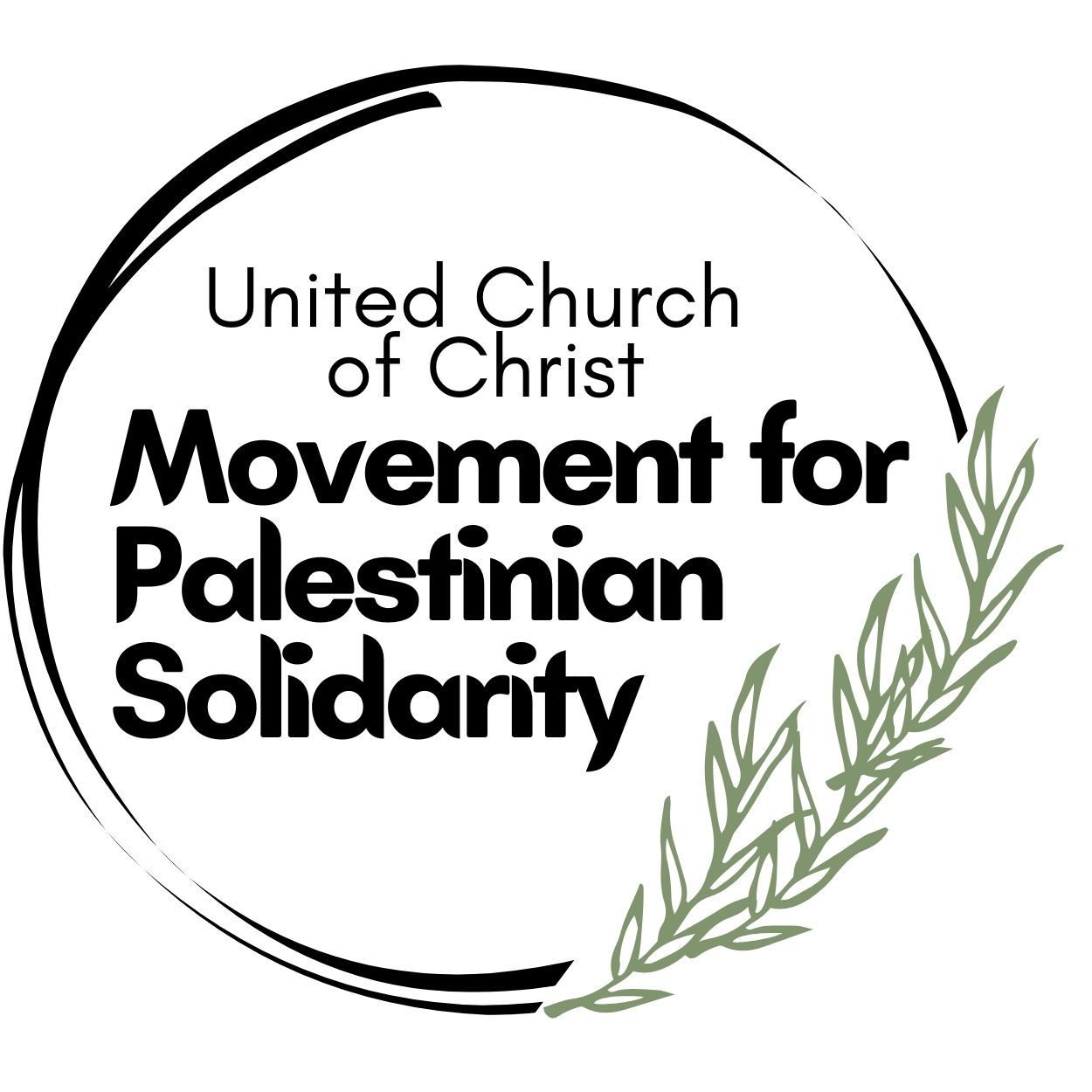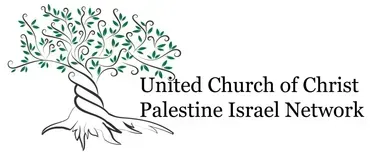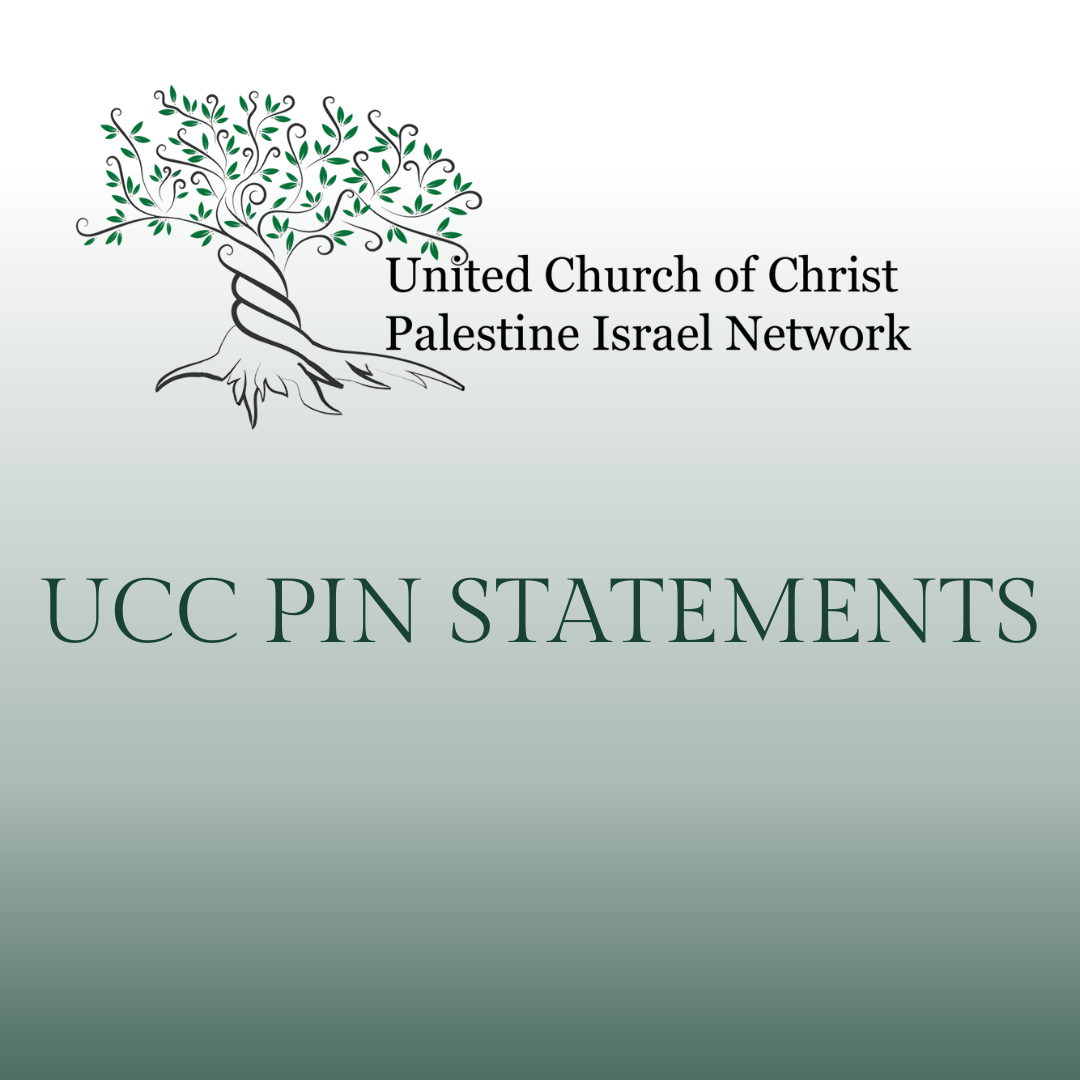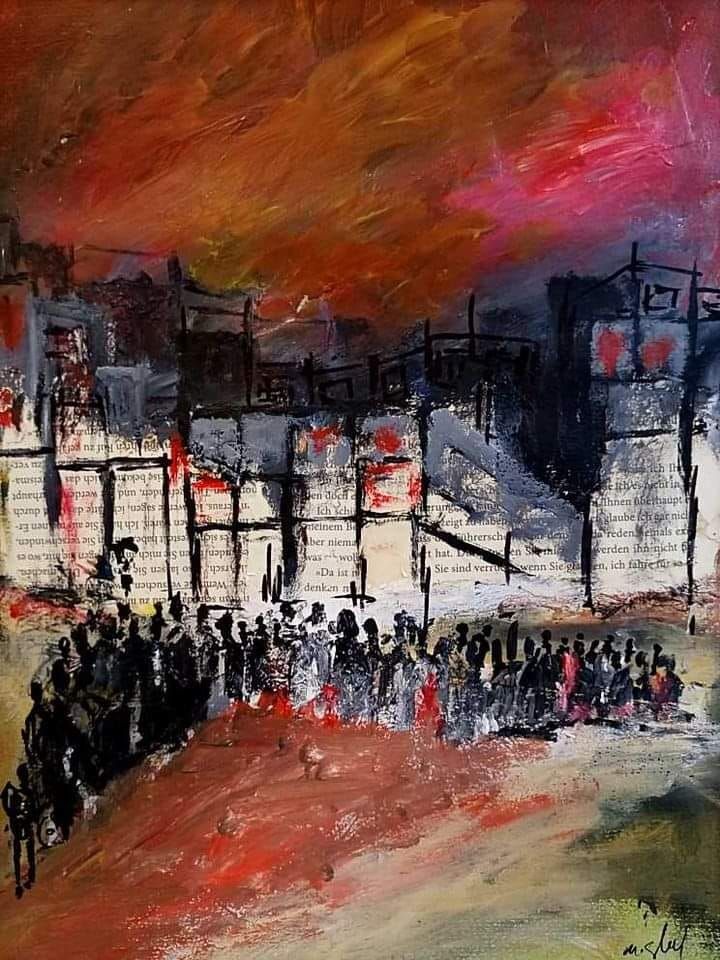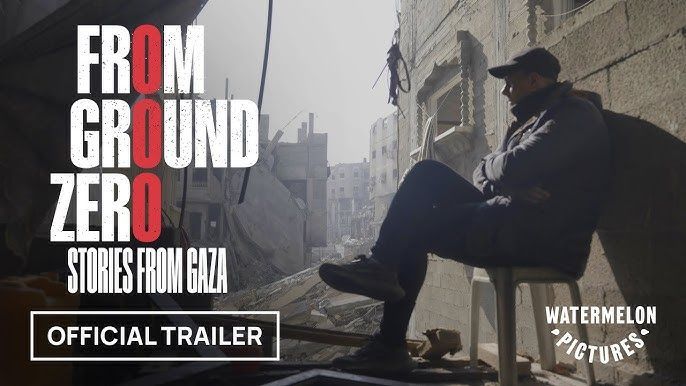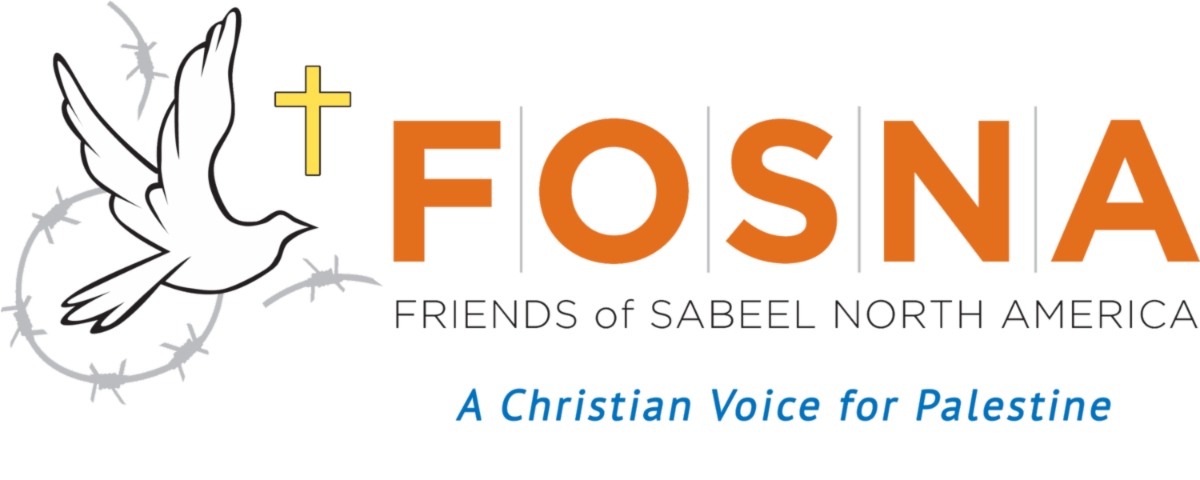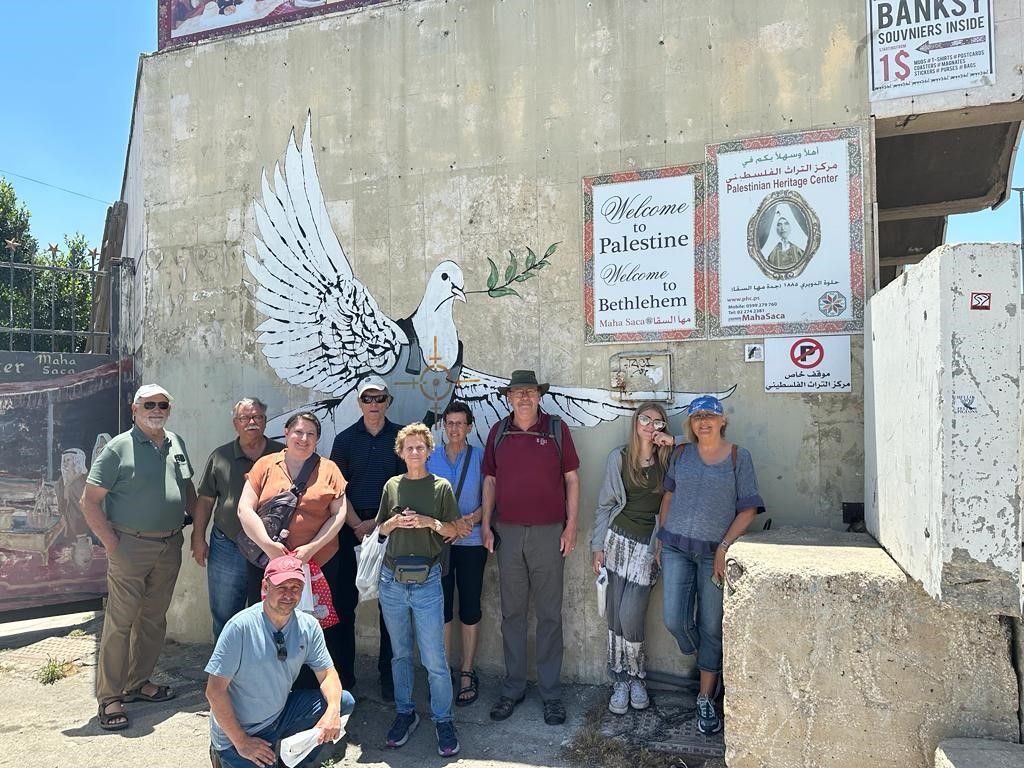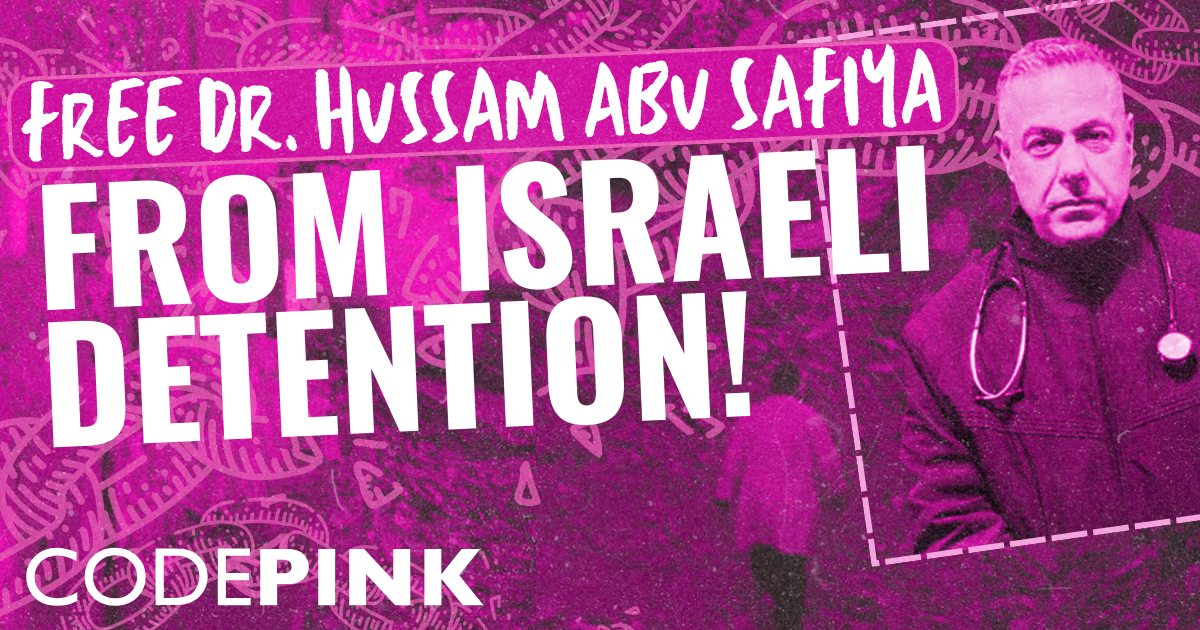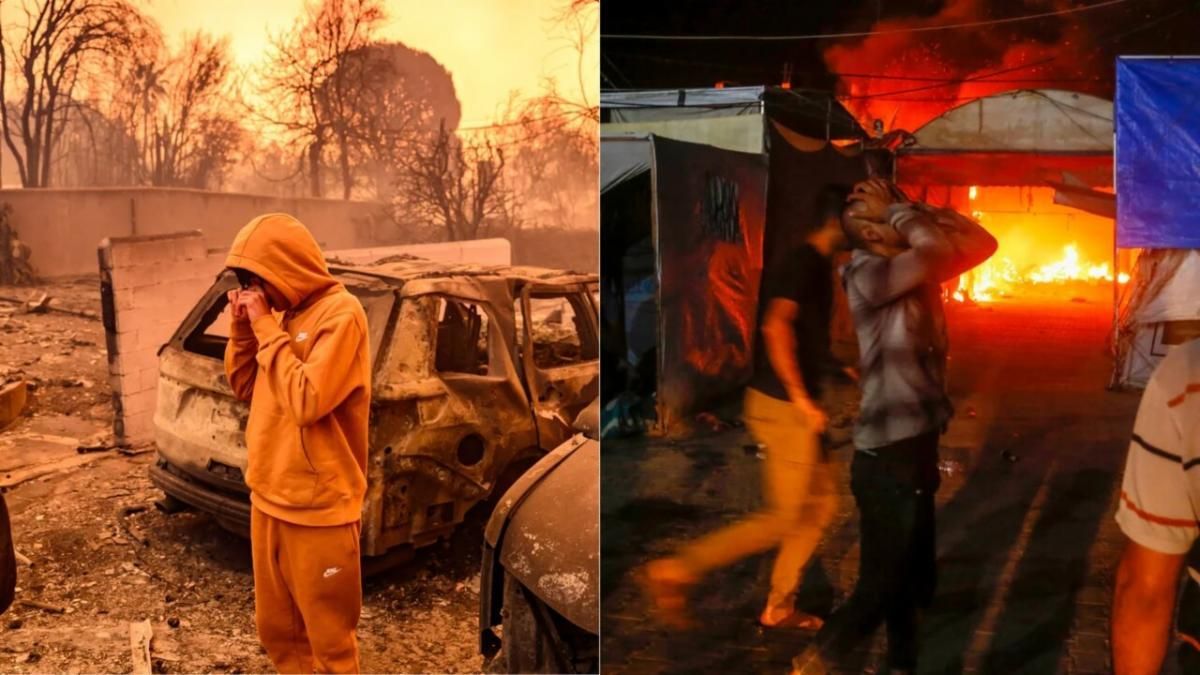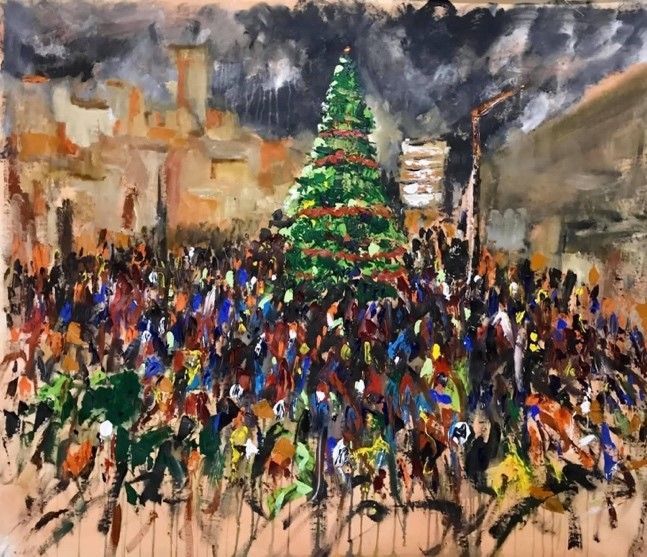UCC PIN's Inaugural Solidarity Circle: Generating Courage, Clarity, and Support
by the Rev. David Grishaw-Jones
When General Synod 31 passed the Declaration for a Just Peace between Palestine and Israel in 2021, UCC PIN faced the challenge of educating congregations, their pastors and congregants, about the resolution and equipping them to act on the resolution’s mandates. But how were we to reach people ‘in the pews,’ given the variety of more obviously immediate issues that local settings already confront and are addressing? How were we to communicate the conviction of Christian Palestinians that “the continued oppression of the Palestinian people remains a matter of theological urgency and represents a sin in violation of the message of the biblical prophets and the Gospel…”?
How might we support UCC church leaders, including those who understand both the relevance and the urgency of the Palestinians’ cry for hope, but are hesitant to speak out, for any number of reasons? Perhaps a fear of being accused of antisemitism. Or perhaps feeling ill-equipped and wanting guidance and needing resources or strategies. Or simply not wanting to go it alone. This challenge led our PIN steering committee to design and launch our Solidarity Circle program.
As a UCC PIN steering committee member, I promoted the idea of solidarity circles, enthusiastic from the start. Even with first-hand experience of Palestine and Israel, I felt as a local pastor (the Community Church of Durham, New Hampshire) the need for support. So, when UCC PIN launched our inaugural Solidarity Circle last November, I signed on as a participant. There were eight of us, all UCC pastors and church leaders, who committed to spend six months in conversation and study around the ongoing struggle for justice, peace and an end to the illegal Israeli occupation of Palestine.
The reverends Marla Schrader, Eric Fistler, and Susan Switzer facilitated each of our online sessions, drawing on their personal and professional experience of traveling and serving in Palestine and Israel. Using a plethora of resources including articles and videos, they curated compelling content for each session. We dove deeply into topics like the Nakba, the 2021 Resolution, Apartheid, the BDS Movement, Risks of Solidarity, Antisemitism and more. Each session included a liturgical context, shaped by prayer, scripture, and deep discernment, as well as by Palestinian art and music.
The sessions offered opportunities for us as participants to discuss and strategize about questions such as: How could our congregations break the silence around Palestinian cries for solidarity and hope? How could we respond to our own General Synod’s resolution with courage and faith? And how might we engage in conversation with those who challenge us and challenge the acceptability and wisdom of calling out Israel’s apartheid regime?
My experience in this inaugural Solidarity Circle confirmed my intuition—that UCC clergy and leaders, motivated to do the work and pursue a just peace in Palestine and Israel, will benefit from relationships of support and accountability. Over our time together, we grew to become our own support community, a community in covenant with God and one another, a community committed to solidarity with siblings in Palestine, Israel and around the world.
While it is true that local politics, concern for interfaith relationships, competing priorities, and already busy lives, can be a disincentive for engaging this issue, through participating in the Solidarity Circle I learned this: Together, in community, we can generate the courage, clarity and support necessary to respond faithfully to the Gospel and to the urgent cry for hope from our Palestinian partners.
